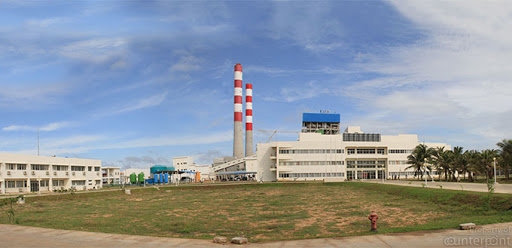A study of the social and environmental costs associated with four thermal power plants, was released by the Public Utilities Commission of Sri Lanka (PUSCL) today, June 11, while simultaneously launching stakeholder consultations on the findings of the report.
Titled, ‘Estimation of External Cost of Thermal Power Generation in Sri Lanka” the study had been commissioned by the PUCSL in 2018, and the findings released in April this year. The study had been carried out by a panel of the Sri Lanka Energy Managers Association, (SLEMA), a media release by PUCSL said.
The study involved four selected thermal power plants, namely the Lak Vijaya Power Plant (LVPP) in Norochcholai, Yugadhanavi Power Plant in Kerawalapitiya, Kelanitissa Power Station in Peliyagoda, and the Sapugaskanda Power Plant. The externality costs as per the findings of the study are given below:
Lak Vijaya power plant (coal), Rs. 10.23 per KWh, Yagandhavi P P ( Heavy Fuel Oil) Rs. 4.53 per KWh, Kelanitissa P S (Diesel) Rs. 7.55 per KWh, and Sapugaskanda P P (Heavy Fuel Oil) Rs. 4.65 per KWh.
In its Executive Summary, the SLEMA report notes that fossil fuel fired thermal power plants used for electricity generation could, in the short and long term have adverse effects on local communities, the ecological system and society at large.
In this context the report also states ‘that adverse health effects are of special importance” amongst the externalities caused by the use of thermal power. The extent of the effects to health, the report adds depends on ‘the magnitude and duration of the exposure to specific pollutants, and the nature of the exposed population.’
Sri Lanka’s electricity demands are currently met through ‘nine thermal power stations, fifteen large hydroelectric power stations, close to two hundred mini-hydro power plants, fifteen wind farms and more than twenty solar and biomass power plants, the PUCSL release said, adding that most of the fuel-based power stations are owned and operated by the Ceylon Electricity Board (CEB) according to the PUCSL statement.
The release further adds that “Power generation gives rise to a range of environmental issues including air pollution, water pollution, releasing toxic materials and GHG emissions during their operational life. These environmental issues lead to adverse community, social and ecological related costs referred to as externalities. The right costs will help Sri Lanka to discover the real economic impact from power generation and also will help in preparing power generation plans for the country in the future.”
It is expected that the estimated externality values would be used in selecting ‘optimal technologies for power generation in Sri Lanka in the process of LTGEP’. The PUCSL further says that it plans, in the second phase, to extend the study to determine external costs of power generation through other sources such as hydro, solar, wind and natural gas.
The final draft study report and consultation document can be accessed here: – https://www.pucsl.gov.lk/notices/public-consultation-on-estimation-of-externality-cost-of-thermal-power-generation-in-sri-lanka/





